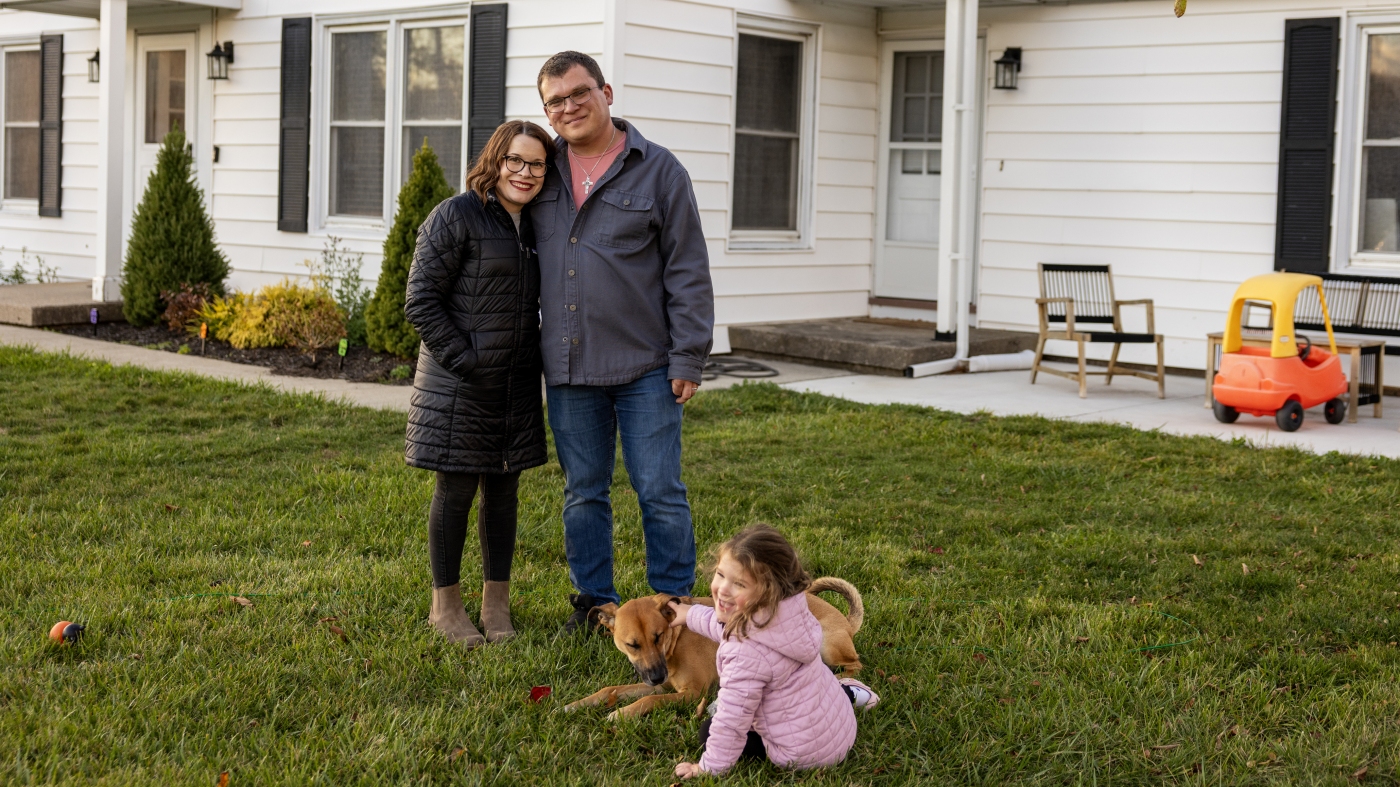People are having fewer kids. Their choice is transforming the world's economy
toggle caption Lauren Petracca for NPR
Families in the U.S. and around the world are having fewer children as people make profoundly different decisions about their lives. NPR's series Population Shift: How Smaller Families Are Changing the World explores the causes and implications of this trend.
Ashley and Nick Evancho say raising their 3-year-old, Sophia, is one of the most joyous things they've ever done. "Watching my daughter run around in the yard is otherworldly for me," Ashley said on a recent afternoon in their home in Grand Island, a suburb of Buffalo, N.Y.
But the Evanchos also made a decision that's increasingly common for families in the U.S. and around the world: One is enough.
Sponsor Message
"I don't need another one. I don't want another one. I love having only one child," said Ashley Evancho, who works as a financial planner.
Her husband, Nick, an Episcopal priest, agreed that big families make less sense in today's economy. "It really stacks the chips economically against you," he said.
toggle caption Lauren Petracca for NPR
Worldwide, the number of children born to the average family has dropped by more than half since the 1970s, according to the latest United Nations data. Economists say having fewer children is the norm for many families, especially in relatively prosperous countries like the U.S.
The trend is leading to populations that are dramatically older, and beginning to shrink, in many of the world's biggest economies.
"This demographic issue is poised
Continue Reading on NPR
This preview shows approximately 15% of the article. Read the full story on the publisher's website to support quality journalism.
